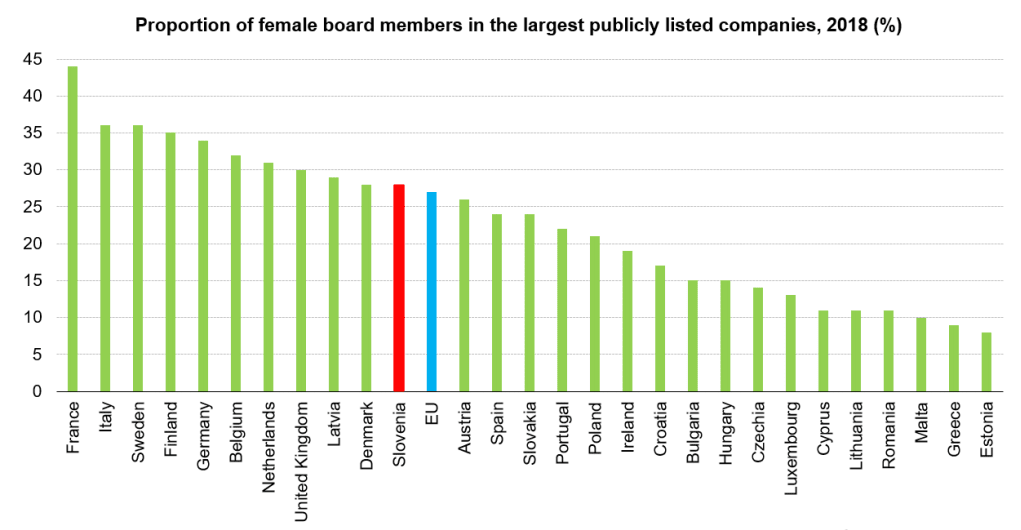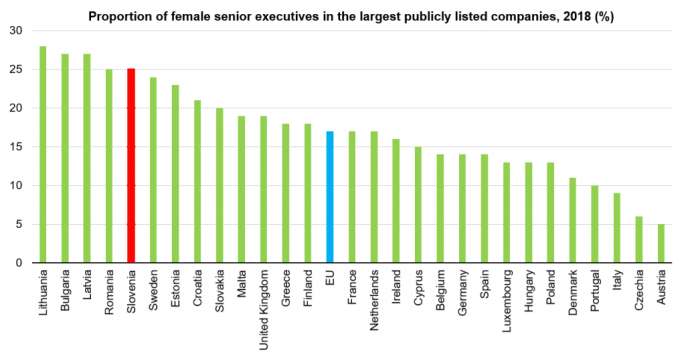STA, 8 March 2019 - Slovenia ranks high among EU member states in terms of the proportion of women in senior management positions. However, even as the rate is increasing, it is still far below targets set a few years ago.
Data released by Eurostat ahead of International Women's Day indicate that almost half of managerial positions in Slovenia are filled by women (47%) and one in four senior executives is female.
This places Slovenia fifth among EU member states, with EU average at 36% and 17%, respectively. The data take into account positions in public and private sectors.
While still above EU average, Slovenia is not among the leaders when it comes to the percentage of women on board members of publicly listed companies, which is at 27%, only a percentage point above EU average.

Similarly, data from the European Institute for Gender Equality show that the proportion of women in senior positions in largest listed companies in Slovenia is increasing.
The proportion of women CEOs, executives and non-executives in such companies rose to 24.7% in 2018, the highest in recent years.
Commenting on the figures, the Manager Association said that this was still far from the target of 40% by 2020, set in a EU directive proposal in 2013 by the then Justice Commissioner Viviane Reding.
The association has been advocating legislative changes to improve gender equality in top corporate positions, pointing to surveys showing companies with gender-balanced managements perform better.
This is also evident from the the Women in Work Index, a survey conducted by Pricewaterhousecoopers, where Slovenia gained one spot to place 4th among the 33 OECD countries.
Consultancy Bisnode has surveyed 18,300 businesses whose chief executives are women, finding that while those represented 25% of the economy, they generated 37% of total revenue and 39% of total profit in 2017, employing 37% of the workforce.
The analysis also showed above-average efficiency of "women businesses", having turned one euro into almost 1.3 euro of profit, which compares to the overall average of 0.9 euro.
Melania Seier Larsen, executive director of Boston Consulting Group and vice-president of the women manager section at the Manager Association, noted disparity between women university graduates and those in senior positions.
"Women represent as much as 58% of graduates, but then there are only 20% women executive directors and only 5% of women are chief executives," she said.
Trends in science are similar; while about as many women as men graduate or even win a PhD degree, the proportion of women as they pursue their careers to regular professorship drops to 17%.
Larsen noted that gender inequality in decision-making positions was huge, quoting World Economic Forum in projecting that at the current pace it would take 100 years to close the gender gap.
The full report, in PDF form, can be found here







